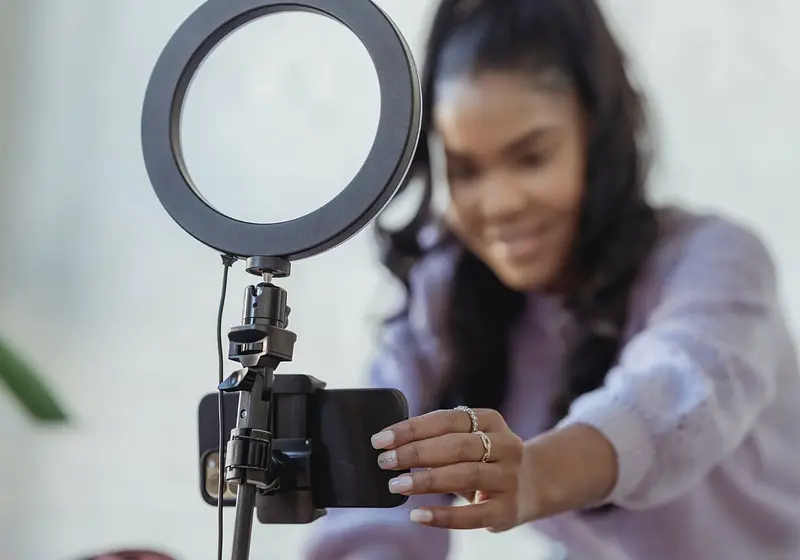In recent years, politicians have become increasingly active on social media, utilizing popular platforms to reach voters easier—particularly in the United States. Nearly everyone of voting age is on social media, making it a much more convenient way for politicians to create a sense of connection with potential voters. Some have even gone on television shows, such as Saturday Night Live and Masked Singer.
Although it is entertaining to watch, there are many downsides to relying on these media platforms, raising the questions: Should politicians be media personalities? Where is the line drawn?
Let us slide into your dms 🥰
Get notified of top trending articles like this one every week! (we won't spam you)Why Have Politicians Become More Involved in the Media?
First, a little background on why politicians have become increasingly active on social media and other similar platforms: before social media was widely used, politicians took advantage of advertisements on television to promote platforms. But as our attention has shifted away from traditional television and turned towards the smaller screen, politicians have begun using it more and more frequently— and it has been very successful, too.
Former President Barack Obama, for example, was one of the first politicians to use social media as a campaign method. He had over 30 million Facebook friends and over 20 million Twitter followers at the time of the 2012 Presidential Election, much more than Mitt Romney’s 8 million friends and 1 million followers.
As a more recent example, former President Donald Trump is perhaps most famous for using Twitter as a way of communicating with voters and promoting his platform. Many well-known politicians have also been going on popular television shows, like The Late Late Show with James Corden, which has featured former President Barack Obama and President Joe Biden, among many others.
Take the Quiz: Which Indian city is the perfect holiday spot for you!?
Let's match you with an Indian city that you would love!
Benefits of Increased Media Presence Amongst Politicians
The increasing media presence of many politicians can be a good thing— at times.
Media Platforms Create a Casual Sense of Connection With Voters
Firstly, social media platforms and television shows present a casual sense of connection that feels more genuine, fabricated or not. Traditional television advertisements didn’t have anywhere near the same sense of closeness.
Even more so, social media platforms give politicians a direct method of communication: they can easily talk to average, everyday voters in a way that would not be possible otherwise. They can showcase a different side of their lives that isn’t entirely focused on politics— they can be funny and relaxed, which makes them more genuine.
Media Platforms Cost Less Than Traditional Television Advertisements
Secondly, in contrast to the millions of dollars many politicians spend on television advertisements, using social media and other platforms is much cheaper. It’s as simple as creating an account and working to build your platform, which doesn’t require politicians to pour in millions of dollars that could be spent on more worthwhile ventures.
One particular benefit of this cheaper method of gaining a following is that it reduces the likelihood that the same candidates keep winning elections simply because they are already well-known and well-established amongst the voters. The increased costs of television advertisements make it very difficult for lesser-known candidates to succeed, simply because they don’t have the funds for them.
Media Platforms Increase Voter Turnout
Similarly, social media increase voter turnout by reaching wider audiences. Most young people don’t spend much time at all watching the television, but they do use social media for hours and hours a day. Over the past decade, the amount of time an average American spends on social media platforms every day has increased from 90 minutes to 147 minutes— nearly an hour more! By contrast, the amount of time an average American household spends watching traditional television has decreased from over eight hours a day to just over four hours.
Although television is still relevant, other media platforms are gaining popularity and are, in particular, good for targeting younger voters and encouraging them to vote.
Downsides of Politicians Gaining Media Platforms
While utilizing social media to connect with and reach more voters can be a good thing, there comes a time when it becomes too much.
Media Platforms Don't Highlight The Best Leadership Qualities
Our politicians are, at the end of the day, politicians. They’re not meant to entertain us, however amusing they may seem. Their job is to represent the constituents, and even though using media platforms can be a very successful way of gaining voters, electing politicians purely based on how likable and charismatic they seem on those platforms is not always good.
We often think of politicians as big and bold, but in reality, those are not the best qualities of a good leader, which are what we should be looking for. Good leaders are stable, resilient, and relatively calm, which don’t tend to be our instinctive thoughts when considering candidates. In fact, when it comes to becoming a media personality, those are often the last traits one would think of, which makes it even more concerning that more and more of our politicians are elected based on how well they have built media platforms.
Media Platforms Are Not Always Accurate Sources of Information
Furthermore, social media and other popular media platforms are hardly the most reliable ways of receiving information, making it much easier to twist our perceptions about politicians without us even realizing it. In our current political climate, social media are even less trustworthy when it comes to anything political. News— overdramatized or hyperbolized stories in particular— spreads so quickly on social media, so the truth can often be buried in a torrent of lies.
Beyond the often twisted truths of social media, these platforms also serve to increase the political discourse already brewing. In fact, according to a Pew Research Center study, 65% of Americans agree that social media have a largely negative impact on our country as a whole, politics in particular. This number is relatively unchanged amongst political parties, which means this, at least, is one thing most Americans can agree on.
Conclusion
There are undeniable benefits and downsides to the increased use of social media and other media platforms in politics. While they allow for a different sense of connection with voters and encourage more people to vote, when politicians become media personalities, the drawbacks become much greater. Our tendency to be drawn towards drama and discourse makes it much harder to find truly good political candidates and makes it much easier to find the bolder, louder, and often not suitable candidates.
Furthermore, these media platforms have made politicians, and politics in general, a lot less trustworthy, ruining the already precarious balance the American political landscape is in. So, at the end of the day, politicians using media platforms can be good— but only in moderation.
















